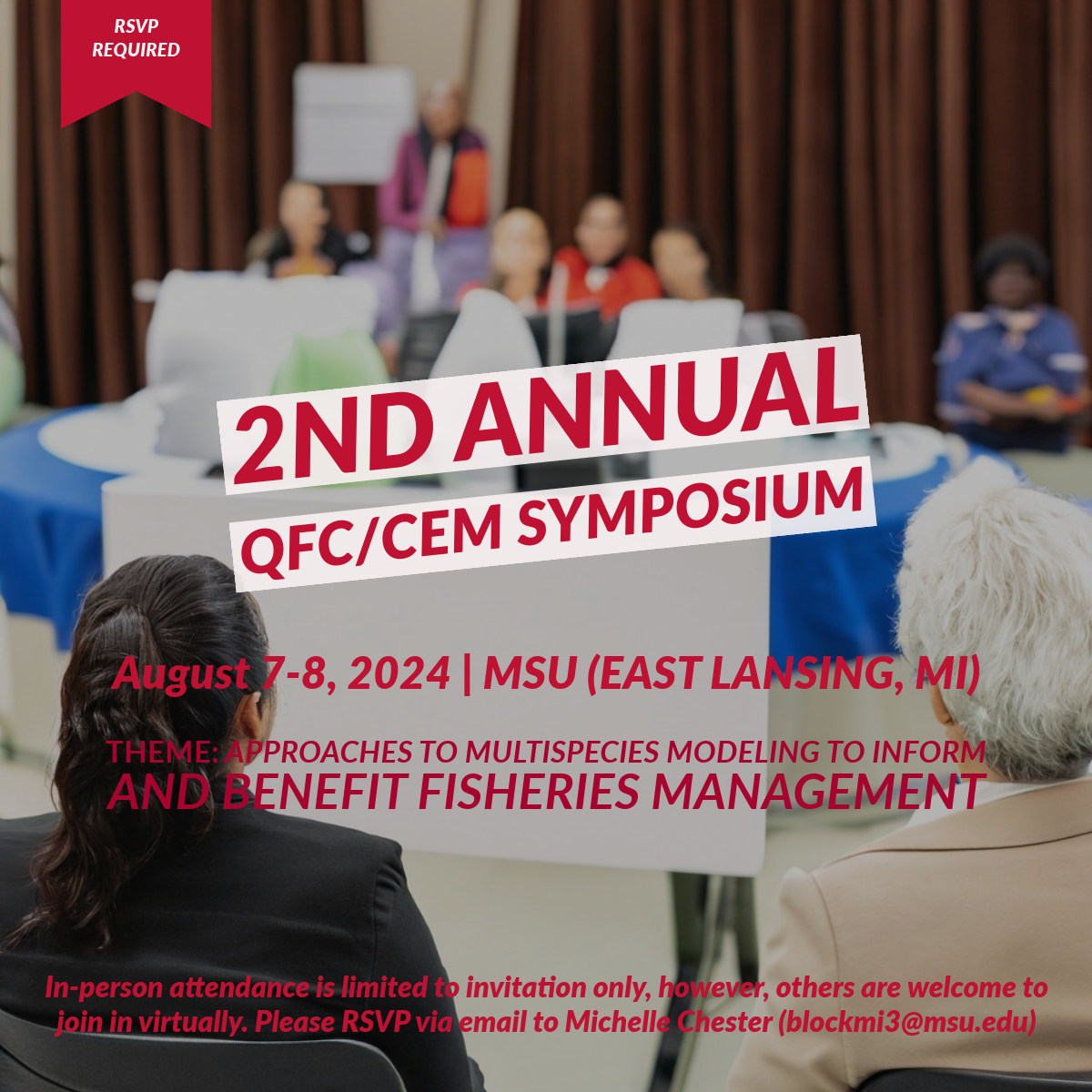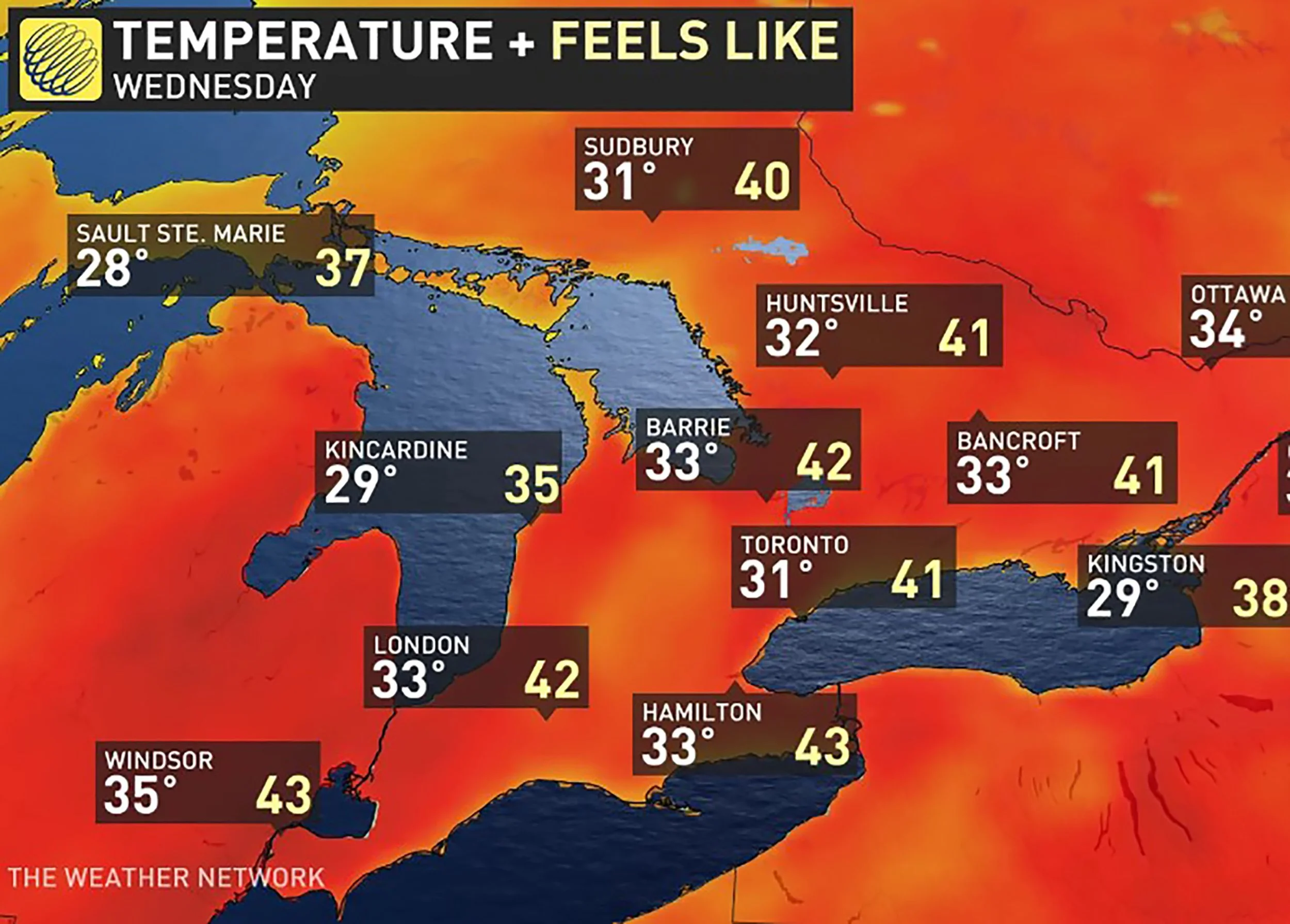We’re pleased to announce that our own Drs. McCann and Bernhardt recently received a grant from the Department of Fisheries and Oceans to support a proposed Timing Windows project.
Read MoreOn September 25 & 26th, 2024, the Canada Water Agency - a federal initiative operating under Environment and Climate Change Canada - hosted the National Freshwater Data Strategy Workshop.
Read MoreWe’re pleased to share that Dr. Chris Brimacombe, a newly-arrived Postdoctoral Fellow here at the Centre for Ecosystem Management (CEM), has been awarded a Natural Sciences and Engineering Research Council of Canada (NSERC) grant to support his research on ecological networks, particularly food webs.
Read MoreThe Canada Water Agency is currently funding Great Lakes projects to target the most significant environmental challenges affecting Great Lakes water quality and ecosystem health.
Read MoreNew research, conducted in part by the CEM’s Director Dr. Kevin McCann, reveals the steep biodiversity costs of global food production. The Conversation explores what’s really at stake.
Read MoreThe CEM team is growing! We have not one, not two, but three new Postdoctoral Fellows who've joined us in the last few weeks, bringing a whole slew of experience and enthusiasm along with them.
Read MoreFreshwater ecosystems, though covering just 1% of Earth's surface, support over 10% of known species, illustrating their crucial role in global biodiversity.
Read MoreThe Stearns Graduate Student Prize, awarded annually by the European Society for Evolutionary Biology (ESEB) and the Journal of Evolutionary Biology (JEB), honours exceptional research by graduate students.
Read MoreAt COP16, Ecojustice, Greenpeace Canada, and other environmental groups urged Canada’s Parliament to pass Bill C-73, the Nature Accountability Act, which has stalled since its introduction.
Read MoreThe Great Lakes are the focus of two compelling new documentaries, The Fish Thief and All Too Clear, each highlighting pressing environmental challenges.
Read MoreHarmful algal blooms (HABs) are becoming a significant environmental concern, driven by rising temperatures and pollution. These blooms, often fueled by agricultural runoff and sewage, can turn our drinking water toxic and pose serious health risks to humans and animals.
Read MoreCBC’s podcast Quirks & Quarks recently featured the paper published in Nature Ecology and Evolution, co-authored by CEM researchers, that explores how our global food systems are becoming less diverse and more susceptible to climate change.
Read MoreWe’re pleased to announce that the Centre for Ecosystem Management has been awarded a $1.18M National Sciences and Engineering Research Council of Canada (NSERC) Alliance grant for our "Rewired Great Lakes Food Webs" project.
Read MoreHumans are producing more food than ever – but at what cost to the environment?
A new analysis from University of Guelph researchers, published in Nature Ecology and Evolution, says our global food systems are becoming less diverse and more vulnerable to climate change, in part due to animals and plants shrinking over time.
Read MoreImagine walking through a forest, surrounded by towering trees, rustling leaves, and the distant hum of insects. Now, imagine trying to trace every single interaction happening in that ecosystem—from the tiniest ant nibbling on a leaf to a hawk soaring above, searching for its next meal.
Read MoreThe Nature Accountability Act (Bill C-73) aims to hold Canada accountable for its biodiversity commitments, addressing a dire nature crisis marked by habitat destruction and species decline.
Read MoreTune in to The Fisheries Podcast’s most recent episode featuring our own Dr. Joey Bernhardt, where she delves into her fascinating career path and shares the passions that drive her work.
Read MoreThe second joint symposium of the Quantitative Fisheries Center (QFC) and Centre for Ecosystem Management (CEM) will be held at Michigan State University on August 7-8, 2024, with the theme Approaches to Multispecies Modeling to Inform and Benefit Fisheries Management.
Read MoreWe are thrilled to congratulate Dr. Amanda Cicchino, Postdoctoral Fellow here at the Centre for Ecosystem Management, on being awarded an NSERC grant for her research pertaining to the impact of global warming on ectotherms, specifically freshwater fish in the Great Lakes basin.
Read MoreExtreme heat can affect everyone and everything. It can have profound effects on the Great Lakes ecosystem by altering water temperature and quality, promoting harmful algal blooms, and stressing aquatic and terrestrial wildlife. Here are just some of the ways you can be an environmental ally during extreme heat events.
Read More



















